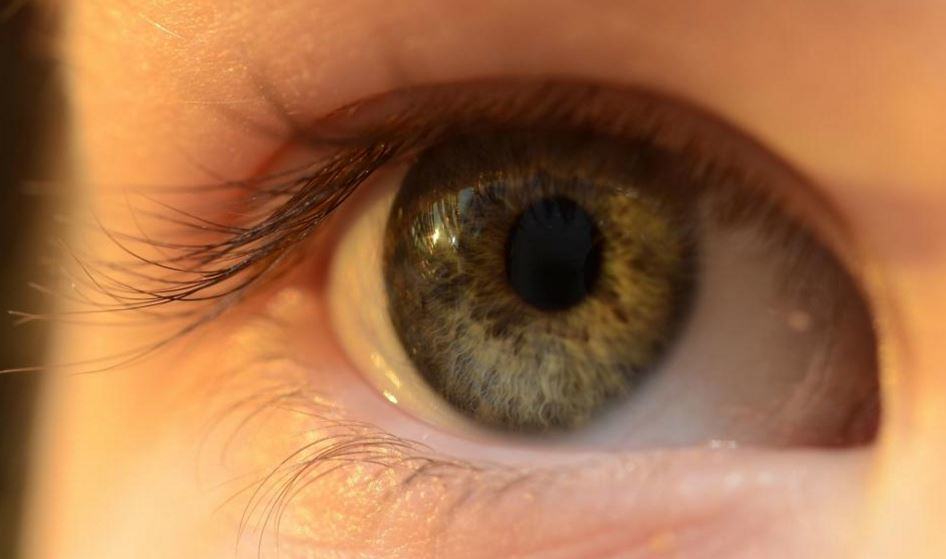
Eye exams are important, as they can sometimes act as mini physicals. The eye is the only organ that a doctor can see the inner workings of just by looking at it—with a simple dilation, they can see how the back of your eye is functioning, which can tell them a lot about the health of the rest of your body. Below are some common health concerns that can present themselves in an eye exam.
Stress
Stress can manifest itself in the body in many interesting ways. In the eyes, stress, lack of sleep, and stimulants (like caffeine) can present themselves as a twitch in your eyelid or as an ocular migraine. Ocular migraines often look like a “shimmer” or a “heat wave” in your vision, and typically last 5-10 minutes. Many times, they are not accompanied by a headache. It is important to get an eye exam if you suspect an ocular migraine, because the symptoms can sometimes be confused with the symptoms of a retinal tear or detachment, which can look like a flash in your vision. Stress has also been associated with a condition called Central Serous Retinopathy, which leads to swelling in the retina and blurry vision.
Diabetes
There’s a reason diabetics are told to have annual eye exams: problems from diabetes can show up as hemorrhaging, or bleeding, in the back of your eye. Sometimes, eye doctors can detect diabetes before the patient even knows they are diabetic. Even when your sugar levels are under control, problems can arise from previous uncontrolled glucose levels. If you are diabetic, it is very important to control your sugar levels for the future health of your eyes. If the doctor suspects diabetic retinopathy, they may order a test called a fluorescein angiogram, in which a fluorescent dye is injected (usually into your arm) and is photographed as it flows through the veins and arteries of your retina, or the back of your eye. This test can give the doctors good information about how your blood flow is in your eye and will guide their treatment. Diabetic retinopathy is often treatable, but it is important to continue to follow-up with your eye doctor to prevent permanent vision loss.
Your Vision
This one might seem obvious, but the main reason most people get their eyes checked is to have their vision assessed. While one’s vision may not have a major impact on their health, unaddressed eyesight problems could lead to endangerment of oneself and others. This is why it’s important to address any vision problems your doctor detects without delay. If vision correction is needed, you’ll generally be given the choice between glasses and contact lenses. If you opt for glasses, be sure your doctor is getting the lenses from a reputable laboratory, so they can be adjusted according to your preferences. If you prefer to wear contacts, there are several different kinds you and your doctor can choose from to make sure you get the right one for you.
Age
As much as we hate to hear it, our eyes age with the rest of our bodies. Around the age of 45, many people start to experience presbyopia, which is the loss of accommodation to near, or reading, vision. Your eye doctor can recommend what strength of readers to purchase if you’ve noticed yourself starting to “play trombone” with your books and papers. Around the age of 50-60 (and sometimes earlier), many people experience what’s known as a Posterior Vitreous Detachment, which is where the vitreous (the gel that fills your eyeball) starts to change consistency and separates itself from the retina. It often times clumps together to form “floaters,” which you might see as little black spots in your vision. Usually, this process is harmless, but occasionally people can develop retinal tears or detachments, so it is important to see your eye doctor if you notice a sudden increase in floaters or in flashes of lights in your vision. Later in life, other issues such as cataracts and macular degeneration can arise, so it is wise to get your eyes checked annually.
Next time you go to the eye doctor, you can expect more than just a prescription for glasses. Ask your doctor what your eyes are revealing about your health, and you could get a wealth of information.
Emma Sturgis
Recent Posts
- Castor Oil For Better Hair Growth: Is It Myth Or Fact?
- Exploring the Differences Between Sermorelin, Ipamorelin, Ibutamoren, GHRP2, and GHRP6: Understanding Their Role in Human Growth Hormone Regulation
- Unraveling the Mystery: Understanding the Causes and Prognosis of Ventricular Tachycardia Without Apparent Heart Disease
- Understanding Grandparents’ Rights in Oklahoma: Navigating Visitation and Legal Protections
- 10 Reasons to Consider Hypnotherapy for Your Health

